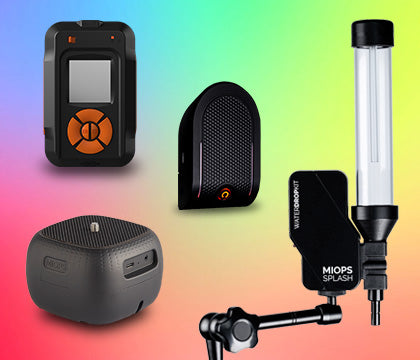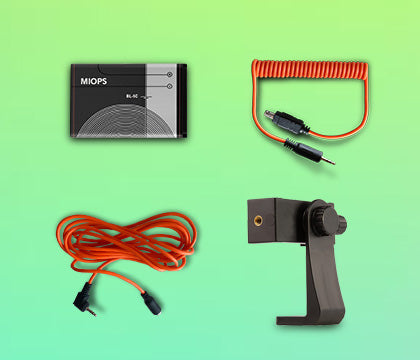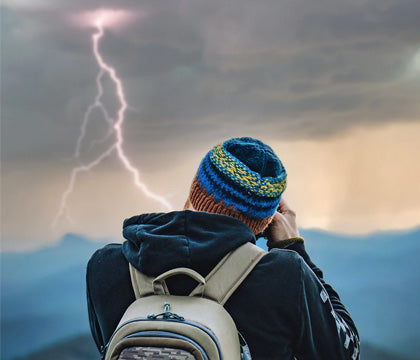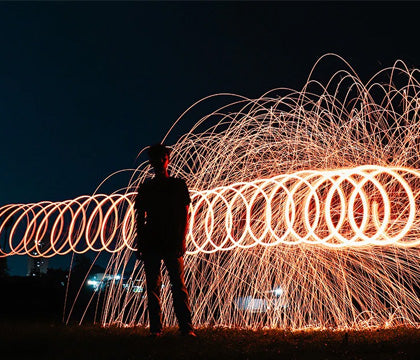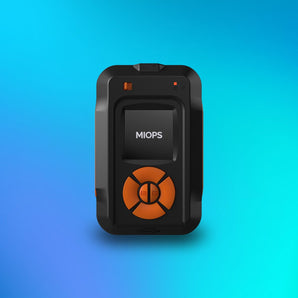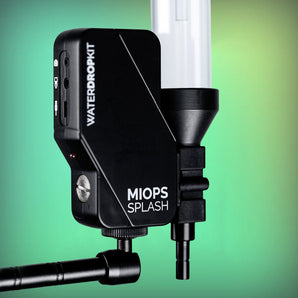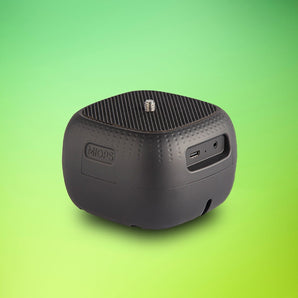Many professional photographers are familiar with this one single yet important and practical device that is always a part of their full gear: a remote shutter release. However, other shutterbugs who are just beginning to appreciate the hobby don’t realize the potential shots that this amazing instrument can deliver.
If you’re still new in the world of photography, you’ve probably asked this common question at some point: what is a remote shutter release and what are the important things that you should know about this practical device?

What is a remote shutter release?
Most photography enthusiasts have a “remote shutter release”, in their camera bag. In fact, for them who have discovered the usefulness of this device, their gear will never be complete without it. However, new photographers often consider a remote shutter release as a luxury and often put it last on their list of must-have accessories.
In definition, a remote shutter release is, as the term implies, a remote trigger that can be connected to your camera either wirelessly or by using a cable to perform its main function: to release the shutter even remotely without physically touching your camera’s built-in shutter release button.
As mentioned above, every camera has its built-in shutter release button that serves as a trigger device for your camera to do its job – take photos – based on the timing that you want to target – so why would anyone need to pay extra for an additional trigger device if your camera already has one? The following sections will help you answer this question.

There are two types of a remote shutter release: the untethered and the tethered releases.
Basically, the tethered release is a wired remote trigger while its untethered counterpart uses a wireless technology to do its job.
Furthermore, a tethered release is also known as a “cable release”, has a remote trigger that is connected to the actual camera via a wired technology.
On the other hand, the untethered remote camera release makes use of a wireless receiver that is capable of communicating with your camera through infrared or a radio wave such as Bluetooth.

Your camera model will determine which type of a remote shutter to use.
The type of remote shutter that most photographers use always depends on the type of camera they have. This importance of compatibility is always highlighted before purchasing a remote shutter release.
Untethered Release
Most cameras can freely use a wireless shutter release but you have to double check if you’re getting the right model. Most companies have information related to model and device compatibility readily available so always remember to check before finalizing your purchase.
Most people, for any device accessories, know the advantages of purchasing something wireless and unrestricted by cables, so you might wonder, why would anyone buy a tethered shutter release if they can have an untethered version?
While a wireless shutter release basically offers flexibility and versatility, it’s more expensive and you also need to consider preparing extra batteries, like most wireless devices, to make sure you don’t run out especially if you’re spending days in the outdoors.
Tethered Release
To answer the question posed from the previous section, a wired or cable shutter release can be a wiser choice for photographers looking for more affordable alternatives.
If you’ll be buying a cable release for the first time, you’ll be presented with a decision even before choosing the brand or model that you want to have. First of all, you have to choose the length of the cable. Most of the time, short cable releases range from 4 to 6 inches in length. Some cable releases can go as long as 5 feet.

The length makes a difference when choosing a cable release.
Needless to say, longer is better when it comes to purchasing a tethered release. One of the reasons why camera enthusiasts buy a remote trigger for shutter release is to avoid blurry images caused by shaky camera handling especially when pressing the shutter button. In other words, the longer the cable is, the lesser the probability of shaking and blurry images.
The only drawback, of course, is trying to fit a longer cable release in your camera bag.
A remote shutter release is an ultimate solution to camera shake.
As what was pointed out in the previous section, a remote trigger can easily remove the most common causes of blurry images when taking photos. In fact, the main reason why most professional photographers have a remote shutter release device handy is to make sure that they capture high-quality shots without worrying about camera shake.
One example is when trying to take a photo of a subject under a high magnification, pressing the shutter button without any help from a remote shutter release will always result to blurry images even under the most delicate hands. The results will also be the same when taking photos with your camera set on a slow shutter speed.
A remote shutter release, whether it’s wired or wireless, can solve all that with the press of a button. Imagine having the ability to capture the most amazing and high-quality images in just one try? If you’re a professional photographer, it will save you a lot of time. For beginner shutterbugs, it will help you feel accomplished and satisfied even if you’re just starting to master everything about your hobby.

Wireless releases removes the rush in group shots
If you’re always with your gang and you’re the designated photographer, you know too well how hard it is to always be literally outside the frame. Sometimes, you’re the one who is always “not in the photos” unless you set a timer and run in panic towards the front of the camera just to make that perfect group shot.
One underrated use of a wireless release is its convenience when it comes to taking these kinds of photos. All you have to do is press and release the shutter via a remote trigger.
Wireless release makes capturing impossible sights and subjects possible.
Aerial photography will never be possible without a remote camera trigger. This goes the same with shooting in the wild, especially for evasive (and often dangerous) subjects like animals, birds, etc. All you have to do is to set up your camera in an ideal location, wait for your subject and trigger your gear from a distance.

A remote shutter release is perfect for many kinds of photography
Remote camera triggers can help you achieve the most mesmerizing and high-quality shots for different types of subject and photography genres. Aside from being an ideal camera partner for doing macro photography, it’s perfect for telephoto lenses even when using slow shutter speeds (for both night and day photography). Furthermore, it’s a useful accessory for capturing millisecond-long moments like water drops, lighting, and many high-speed events.
How to turn your smartphone into a powerful camera remote
Have you ever thought of taking incredible photos using your DSLR or mirrorless camera using the power of your smartphone? With MIOPS Mobile Remote, you can transform your smartphone into a versatile camera remote. This amazing device connects to the shutter release port of your camera and communicates with your smartphone over Bluetooth. It offers greater functionality than a standard cable release by giving you control of the shutter so you can always include yourself in any photograph or take a self-portrait instead of a selfie.
By controlling your camera with your powerful smartphone, you can even capture yourself while screaming or take a photo of you while doing a slam dunk. Watch MIOPS Mobile Remote in action in this video to learn more.
Related Article: What is a Camera Trigger? A Simple Guide for Beginners
Related Article: High Speed Photography Explore Site


